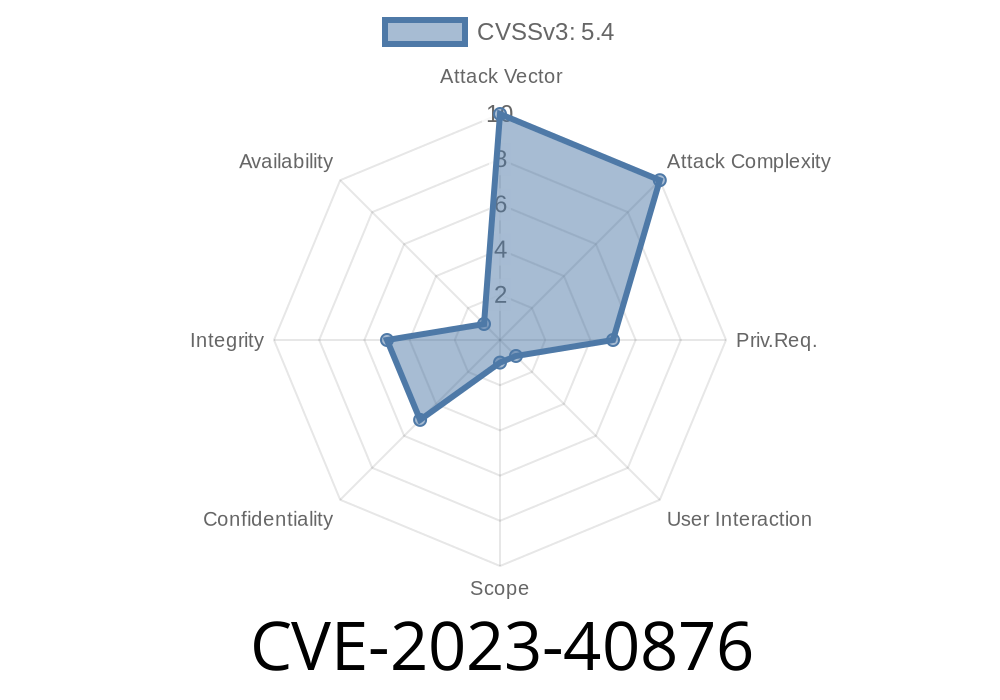Recently, the web development community was shaken up by the discovery of a critical cross-site scripting (XSS) vulnerability in DedeCMS — specifically versions up to and including 5.7.110. This flaw, logged as CVE-2023-40876, exposes websites to potential script injection through careless handling of user input. In this in-depth post, I’ll break down what went wrong, show you the vulnerable code, share a real attack snippet, and link you to the official references.
What is DedeCMS?
DedeCMS is a popular open-source content management system used widely in China and other regions. Built mainly in PHP, it’s used by many small-to-medium websites.
The issue is found in the file
/dede/freelist_add.php
It boils down to this: the title parameter isn’t properly sanitized or escaped before being output on the page. This opens the door for an attacker to inject malicious JavaScript straight into the application, causing what’s known as a stored or reflected XSS attack.
Why Should You Care?
XSS attacks can steal session cookies, deface web pages, or even redirect users to harmful sites. If you’re running any version up to 5.7.110, your site is at risk of being exploited.
The Technical Details
When a user adds a new “freelist” item in the DedeCMS backend, they submit a form containing a title parameter. Here is a simplified example of how the vulnerable snippet might look:
<!-- freelist_add.php (excerpt) -->
<?php
$title = $_POST['title'];
// Title is used directly in the output:
echo "<input type='text' name='title' value='".$title."'>";
?>
There’s no escaping or sanitization. So if an attacker submits
<script>alert('XSS!')</script>
as the title, the resulting HTML becomes
<input type='text' name='title' value='<script>alert('XSS!')</script>'>
When any user loads the page, the browser will run the attacker’s script.
Here’s a curl command to reproduce the attack (make sure you have permission to test!)
curl -X POST "http://victim-site/dede/freelist_add.php"; \
-d "title=<script>alert('XSS!')</script>&other_param=foo"
After this, log into the DedeCMS backend, go to the freelist management page, and you (and any admin) will see the annoying pop-up. Attackers could replace alert('XSS!') with anything: stealing cookies, redirecting, or worse.
Real-world Impact
1. Session Hijack: If an admin loads the page with an injected script, a hacker could extract the admin’s session.
Fixes & Mitigation
What should you do? Update DedeCMS as soon as a patch is available! If you’re stuck on an old version, you can hotfix your code like this:
// Hotfix for freelist_add.php
$title = htmlspecialchars($_POST['title'], ENT_QUOTES, 'UTF-8');
echo "<input type='text' name='title' value='".$title."'>";
This simple change prevents scripts from getting injected and executed.
References
- CVE-2023-40876 at NIST
- DedeCMS Official Download
- Common XSS Prevention Techniques (OWASP)
Final Thoughts
CVE-2023-40876 is a textbook example of how missing input validation leads to dangerous vulnerabilities. If you use DedeCMS, patch now, and always remember: never trust user input!
Got questions? Drop them below or check out the links above for more technical nitty gritty.
Timeline
Published on: 08/24/2023 15:15:07 UTC
Last modified on: 08/25/2023 13:20:10 UTC
